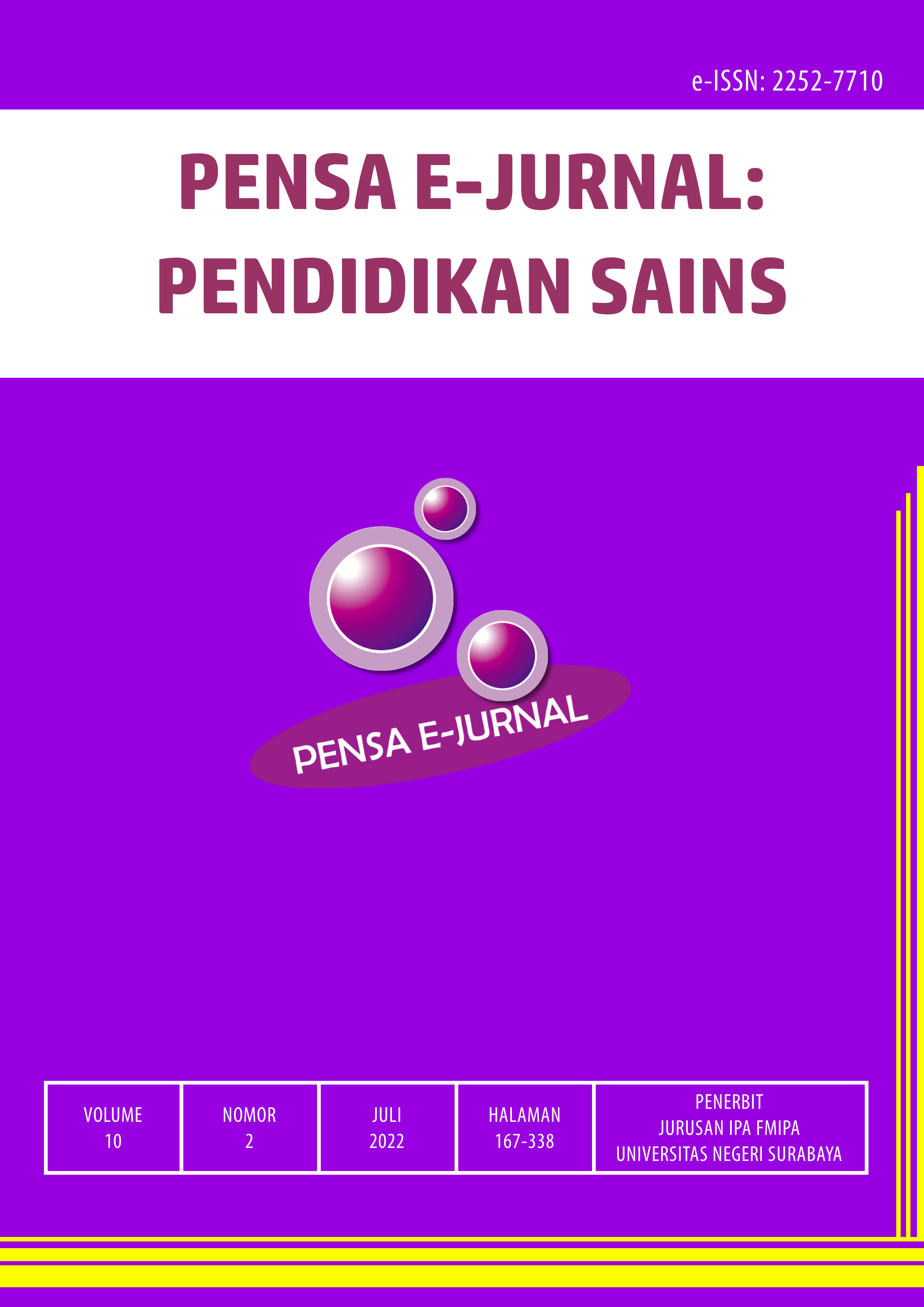ANALISIS IMPLEMENTASI MODEL DISCOVERY LEARNING DALAM PEMBELAJARAN IPA DI MASA PANDEMI COVID-19
DOI:
https://doi.org/10.26740/pensa.v10i2.44774Keywords:
Discovery Learning, online learning, inductive and deductive thinking, science educationDownloads
Download data is not yet available.
Downloads
Published
2022-07-31
How to Cite
Alfiana, A. S., Erman, E., & Sari, D. A. P. (2022). ANALISIS IMPLEMENTASI MODEL DISCOVERY LEARNING DALAM PEMBELAJARAN IPA DI MASA PANDEMI COVID-19. PENSA E-JURNAL: PENDIDIKAN SAINS, 10(2), 172–178. https://doi.org/10.26740/pensa.v10i2.44774
Issue
Section
Articles
 Abstract views: 357
,
Abstract views: 357
, PDF Downloads: 434
PDF Downloads: 434

















